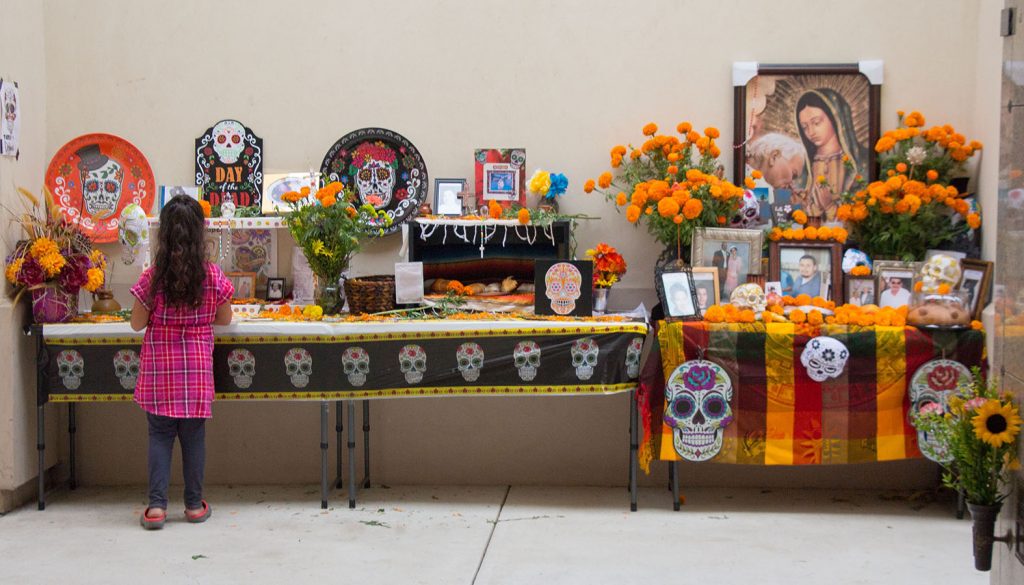Halloween is one of my favorite holidays. I’ve always loved the creativity, playfulness, and sense of community that comes along with it. At one parish where I was a youth minister, the teenagers hosted a big celebration every year for the young families of the parish, complete with carnival games, crafts, face-painting and of course, candy! It was there that I first encountered some pushback on my great love for Halloween. Most of the parish was enthusiastic about the event, but one or two folks expressed concerns about Halloween being associated with the devil.
I had only encountered that idea among fundamentalist Christians in the past, and since then I’ve made it my mission to spread the word that Halloween is as Catholic a holiday as nearly any other overly commercialized, culturally co-opted celebration. It can proudly take its place among St. Patrick’s Day, Mardi Gras, (Saint) Valentine’s Day, and Christmas. For goodness’ sake, even its name is Catholic!
Halloween, or All Hallow’s Eve as it was once known, is so named because it’s the vigil of All Saints’ Day. Some of our current Halloween customs have their roots in ancient celebrations related to this solemnity and to pagan celebrations that the church wisely folded in to help the newly Christian adopt the faith more easily. I’ve never been a fan of the more gruesome scares that can be a part of some celebrations, but to a degree, even those are a part of this season. They can poke fun at evil in a way that recognizes Christ’s victory over death. Death, once the greatest of evils, is rendered powerless by the resurrection. Christians need not fear it.
All this is to say that Catholics need not shy away from Halloween, and indeed can celebrate gladly. With small children, make Halloween holy by simply enjoying the holiday together. Decorating, trick-or-treating, connecting with neighbors and friends, all while being patient and kind with each other might be the most important practice of holiness. Grade schoolers can be encouraged to include the kids who sometimes get left out when making plans for parties or trick-or-treating. They can divvy out some of their candy for the local food cupboard or help make some Halloween treats to bring to a nearby homeless shelter.
Halloween affords the opportunity with teens to talk about which parts of popular culture we want to celebrate as Catholics (community, joy, creativity) and the things we reject (glorifying evil, treating people as objects with sexist or racist costume choices). This is done best not with lectures or scolding — after all, teens aren’t the ones who invented all that, it was older adults looking to make a buck off Halloween — but by inviting them to critique the wider culture and ask how it matches up with what we say we believe.
All ages can delight in the levity of Halloween, and remember that it points us toward the remembrances of the days that follow, All Saints on November 1st and All Souls on November 2nd.

